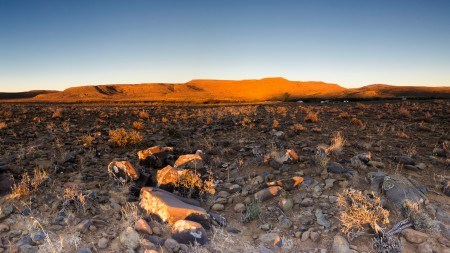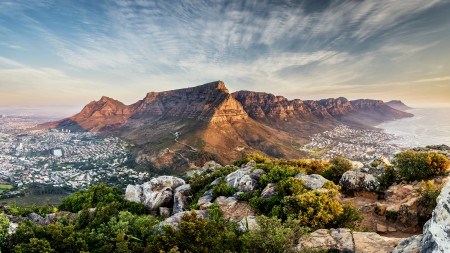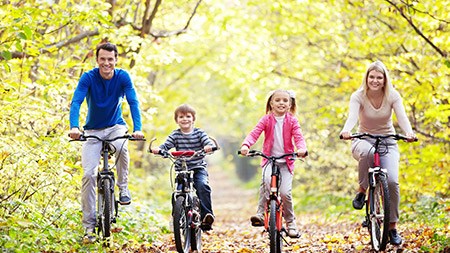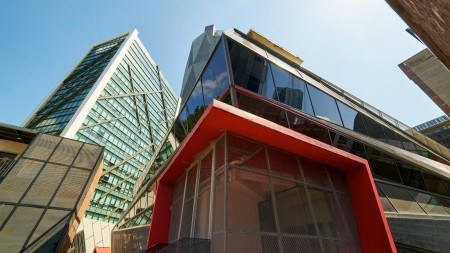The third largest town in the Northern Cape, De Aar is conveniently situated at a central railway junction where the Eastern Cape, Western Cape, Northern Cape, Zimbabwean and Namibian lines meet. Known as the farming and commercial production centre for the greater Karoo, De Aar is steeped in South Africa’s history and culture.
De Aar’s homeowners
According to data from Lightstone Property, a large majority of existing homeowners (82%), have owned their homes for 11 years or more, while only 8% have owned their homes for 5 to 7 years, 5% for 8 to 10 years and another 5% less than 5 years. While the majority may be long term residents, it is this group that also dominates the recent sellers space; 77% of long term residents have recently sold their properties in De Aar. This leaves 9% of sellers who owned a property between 8 and 10 years, 4% of sellers who owned a property between 5 and 7 years, and 10% of sellers who owned a property for less than 5 years. While the majority of long term residents are selling, this doesn’t necessarily mean they have left De Aar, they could easily have sold in order to upscale or downscale their properties.
The age of homeowners in De Aar reiterates the trend above. The percentage of existing, stable owners in the last year was at 45% and aged 65 years and older, whereas 36% were aged 50 to 64, 17% aged 36 to 49 and only 2% aged 18 to 35. The recent buyers group on the other hand was dominated by those aged 36 to 49 at 29%, with those aged 65 or older at 18%, those aged 50 to 64 at 27% and those aged 18 to 35 at 26%.
View homes for sale in De Aar here
Most popular property types
De Aar is no small town, and offers everything from freehold property, sectional title schemes and estate units to vacant freehold and estate land. From February 2018 to January 2019, 41 transfers on developed freehold properties were recorded. Of these 41 transfers, 12 were valued between R0 and R400,00 each, 16 valued between R400,00 and R800,000 and 16 valued between R800,00 and R1.5 million. This makes developed freehold properties the most popular property type in De Aar.
The second most popular property type is freehold vacant land, where a total of 23 transfers were recorded over the same time period. 16 transfers were valued between R0 and R400,00 each, and 7 valued between R400,000 and R800,000 each.
The growth of property prices
Average freehold property prices in De Aar saw an increase from R270,000 in 2008 to R600,00 in 2016, while 2017 saw a decrease to R530,000 and then up again to R675,000 in 2018. Average vacant land prices have also jumped up and down, from R120,000 in 2008, up to R215,000 in 2012, down to R192,000 in 2014 and back up to R250,000 in 2018. The ups and downs could certainly be a result of the economic climate, as buyers wave between confidence and uncertainty in the market.
Registration figures
The number of vacant land and freehold property registrations reflect the up and down trend of property prices between 2008 and 2018. in 2008 there were 65 freehold property transfers and 28 vacant land transfers, while this dropped to 40 freehold property transfers and 23 vacant land transfers in 2014. These numbers then rose to 45 freehold property transfers and 35 vacant land transfers in 2016, dropping again to 44 freehold property transfers and 24 vacant land transfers n 2018.
A farm town filled to the brim with history
Despite being known first and foremost as an agricultural and commercial region, De Aar is placed firmly in the history of the country. With a Garden of Remembrance that honours the British Soldiers killed during the Boer War, and numerous areas of Khoisan rock art dotted around Nooitgedacht, Brandfontein and Damfontein farms, De Aar is a true reflection of the country’s past.
De Aar offers a unique climate of cold, icy winters with temperatures leading into the minuses, and extremely hot and humid summers with temperatures reaching close to 40°C. Afrikaans is still the leading language, but additional languages spoken include Xhosa and English, and there are a total of 13 schools offering both primary and high school education. As one of the main suburbs in the Karoo, De Aar offers predominantly family homes and plots with sizeable gardens perfect for couples with children and pets.





